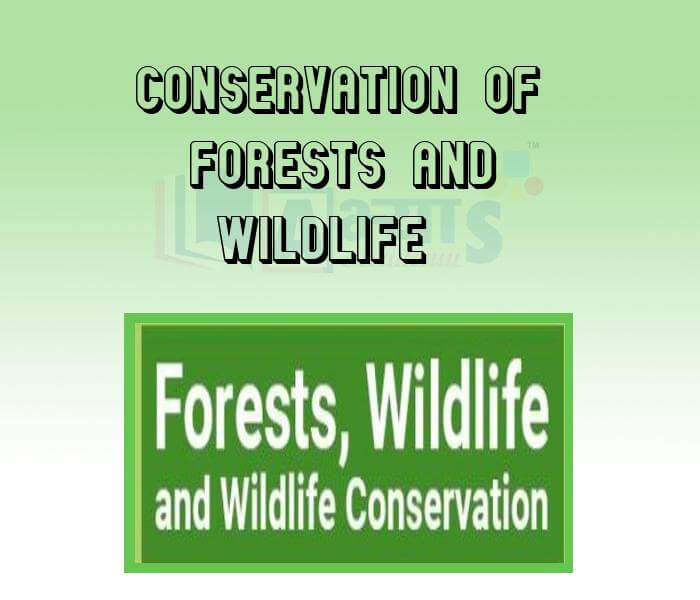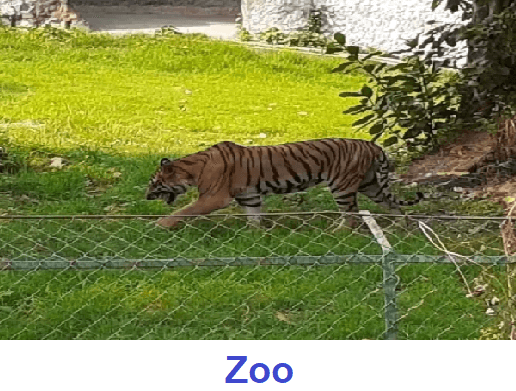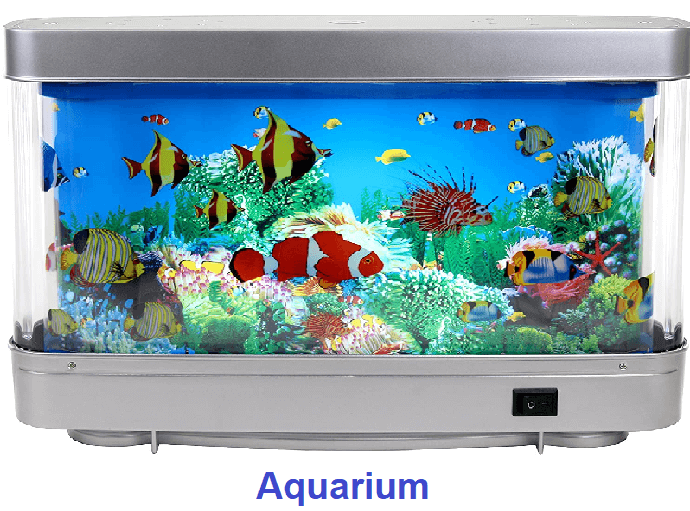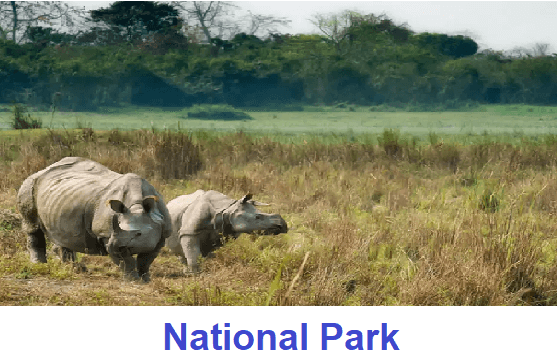Conservation of Forests and Wildlife





Conservation of Forests and Wildlife
The protection, preservation, management or restoration of wildlife and of natural resources, such as forests, soil and water is known as conservation. The variety of life on earth is commonly referred to as biodiversity. It plays an important role in the function food chains and food webs. In fact, it helps to maintain the ecological balance of ecosystem.
Biodiversity : Number and variety of life forms includes plants, animals and microorganism that exists is known as biodiversity.
Conservation of Wildlife: By preventing deforestation, planting new forest(afforestation) and creating wildlife sanctuary we can protect natural habitat and provide food and shelter.
Wildlife includes those animals that have not been domesticated or tamed and are usually living in a natural environment including both game and non - game species. Deserts, forests, rain, forest, urban sites , plains, grasslands and other areas including the most developed all have distinct forms of wildlife.
Factors responsible for extinction of wild life :
Strategies for wildlife conservation : Wildlife protection act was passed in 1972 and amended 1981. Forest protection act was passed in 1980 while environment protection act was passed in 1986. Under the wildlife protection act a large number of sanctuaries, national parks and biosphere reserves were established in different parts of the country.
Important steps for wildlife conservation are :
Conservation are categorised into in-situ and ex-situ conservation.
| Ex - situ conservation | In - situ conservation |
| It means the conservation of biological diversity outside their natural area. | It means the conservation of biological diversity in their natural habitat it self. |
| Artificial conditions are created to make their habitat almost like their natural habitat. | Protected areas are the sancturies and the national parks |
| It involves the maintainence of genetic variation(Genetic conservation) away from its original location. | It aims to enable biodiversity to maintain itself within the context of ecosystem. |
| Established botanical and zoological gardens, conservation strands, banks of germplasm, pollen, seed, seedling, tissue culture, gene, DNA etc. | Establish a protected area network with appropriate management practices. |
| It identifies and rehabilitates threatened species. | It involves the reduction of biotic pressure rehabilitation. |
| Example : Zoo, Aquarium, seed banks, botanical gardens etc. | Example : National parks, biosphere reserves, parks and sancturies. |
 |
 |
 |
Project Tiger was launched in which year? | |||
| Right Option : B | |||
| View Explanation | |||
Which of the following relates to multipurpose protected areas meant for conservation of wildlife ? | |||
| Right Option : B | |||
| View Explanation |
Desert can be converted into green land by ________________ | |||
| Right Option : B | |||
| View Explanation | |||
Students / Parents Reviews [10]
A marvelous experience with Abhyas. I am glad to share that my ward has achieved more than enough at the Ambala ABHYAS centre. Years have passed on and more and more he has gained. May the centre flourish and develop day by day by the grace of God.

Archit Segal
7thIt has a great methodology. Students here can get analysis to their test quickly.We can learn easily through PPTs and the testing methods are good. We know that where we have to practice

Barkha Arora
10thIt was a good experience with Abhyas Academy. I even faced problems in starting but slowly and steadily overcomed. Especially reasoning classes helped me a lot.

Cheshta
10thAbhyas Methodology is very good. It is based on according to student and each child manages accordingly to its properly. Methodology has improved the abilities of students to shine them in future.

Manish Kumar
10thIt was good as the experience because as we had come here we had been improved in a such envirnment created here.Extra is taught which is beneficial for future.

Eshan Arora
8thOne of the best institutes to develope a child interest in studies.Provides SST and English knowledge also unlike other institutes. Teachers are co operative and friendly online tests andPPT develope practical knowledge also.

Aman Kumar Shrivastava
10thMy experience with Abhyas academy is very good. I did not think that my every subject coming here will be so strong. The main thing is that the online tests had made me learn here more things.

Hiya Gupta
8thAbhyas is a complete education Institute. Here extreme care is taken by teacher with the help of regular exam. Extra classes also conducted by the institute, if the student is weak.

Om Umang
10thI have spent a wonderful time in Abhyas academy. It has made my reasoning more apt, English more stronger and Maths an interesting subject for me. It has given me a habbit of self studying

Yatharthi Sharma
10thBeing a parent, I saw my daughter improvement in her studies by seeing a good result in all day to day compititive exam TMO, NSO, IEO etc and as well as studies. I have got a fruitful result from my daughter.
